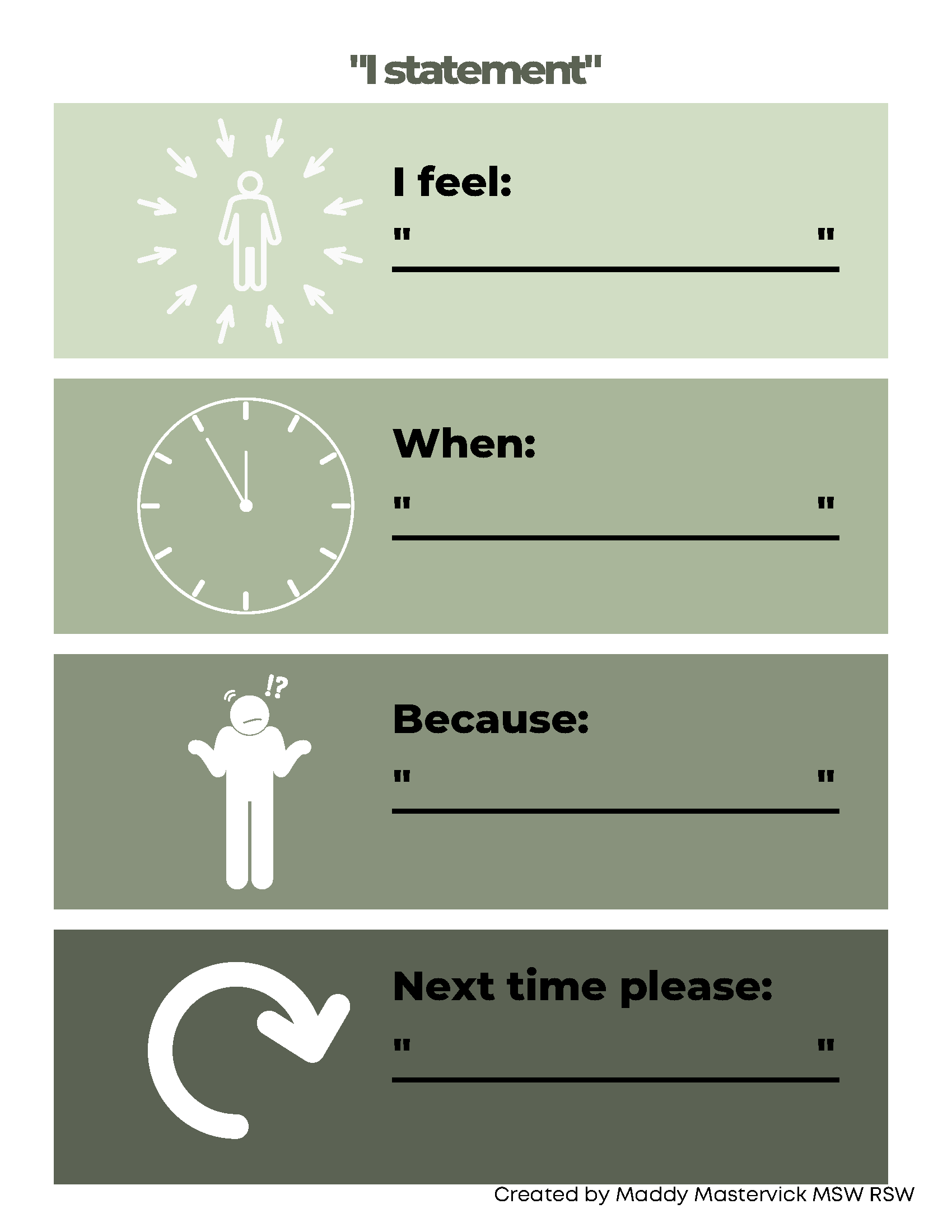How “I statements” can make a difference with your partner, your children, or your classroom
“You make me feel so mad”
“You’re always doing this”
“I feel like you never listen to me”
Perhaps you have heard or said something like this before? During an argument, or when you are feeling overwhelmed, you may scramble to find ways to express yourself and have others truly understand you. But the examples above are not good models to follow. Though these statements may encapsulate the frustration you may be feeling they are not entirely helpful or accurate.
An “I statement” is a specific way to express yourself while taking ownership for your feelings and identifying what behaviours that are upsetting you.
What’s important about an “I statement?”
“When you say, ‘you made me feel’, the other will likely respond with ‘no I didn’t’ but when you take ownership for your feelings, you are not opening it up for debate. ”
It’s important to recognize that you feel your own feelings. When you say, “you made me feel”, this does not properly reflect how humans work as emotional beings. Others are not capable of making us feel things, they are simply able to act in different ways that we may or may not respond to with a particular feeling. So, it should not be phrased “you made me feel” but instead “I feel… because…”. This will also lead to more productive conversations as it is less likely to trigger the other’s defensiveness. When you say, “you made me feel”, the other will likely respond with "no I didn’t” but when you take ownership for your feelings, you are not opening it up for debate.
It is also important that you are careful to not confuse your thoughts, opinions and judgements with your feelings. When one replaces their feelings with their thoughts, opinions and judgements it adds a bit of confusion to the conflict. For example, if you said, “I feel like you never listen to me,” you have replaced an emotion word with an opinion/judgement. That will then likely lead to the other denying it, which may cause you to feel like they are denying your feelings. When one can say how they are feeling without adding their thoughts, opinions and judgements about the other they can then begin the actual work of conflict resolution! This however does not mean that you cannot share what behaviours/actions upset you and why, but that comes second.
One should also be cautious when using “always,” and “never” when discussing someone’s behaviours. These descriptions stir up defensiveness and are rarely accurate.
An “I statement” looks like
“I feel emotion word, when identify the behaviours that upset you, because identify why it was upsetting. Next time please identify what you would like instead.”
Here are Some More Tips for Success:
Start with
I feel…
When…
Because…
Next time…
Follow that with
Emotion word (sad, mad, hurt, embarrassed, alone, etc.)
Identify the behaviours that upset you
Identify why it was upsetting
Identify what you would like instead
Tips
Do not include your thoughts. Feelings only.
Do not use words like never and always. Keep it current, do not bring up the past
Explain how their actions affected you
Remember this may require more conversations in order to be manageable for both parties.
Ready to give it a try yourself? Here are some printables you can use to help remember the steps and to plan out how you can use “I Statements” more yourself!
Free Printables:
About the Author
Madison Mastervick, MSW RSW is a therapist who focuses on working with children, youth and parents on various topics. She is a Registered ECE in addition to being a Registered Social Worker.




